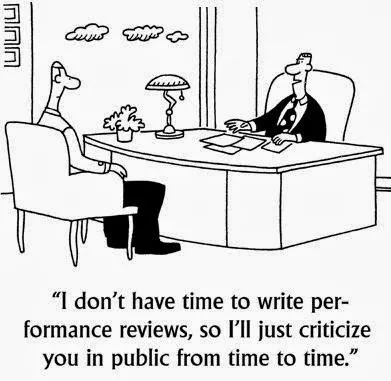
How to improve people management skills
"We can't change what we don't acknowledge..."
It's a truth universally accepted that unless you are aware of a problem, unless it is quantified or measured in some way, you can't change it. How would you even know you needed to change? This principle applies to all areas of life and specifically, how to improve people management skills.
Introspection and an analysis of your own emotions and behaviours is the first step to improving anything about yourself, and is hugely important when asking ourselves "How to improve people management skills".
How can you improve your ability to manage people?
The chances are you will all have a picture in your own mind of what a great manager looks like in terms of skills and behaviours. Sadly though, you will probably have an even more vivid picture of what a ‘bad’ manager looks like.
Libraries, business schools, universities & training companies alike are brimming with material, tools and case studies of what knowledge, skills & behaviours are needed to be a highly effective people manager. By all means, contact us if you want to know more about what great people management skills really are.
The focus in this article is on how to ‘improve’ management skills, indeed this applies to any skills development. By definition improve means ‘change for the better’. Change as you no doubt know first hand, is not something that necessarily comes easily.
What are the steps to improve people management skills?
The key to improving people management skills (or indeed any skill) and creating lasting change is a simple three stage approach, which if done well becomes a self-fulfilling process for continuous improvement.
1. Measure - where you are now?2. Acknowledge what needs changing
3. Practise!
We'll now examine each of these steps in turn.
1. WGMGD - What gets measured gets done
If you want to improve you need to know where you are now and where you want to get to.
There is a range of means available to you, formal and informal, to help you understand where you are now. Whilst informally, to have a culture of open and honest communication where effective feedback is free-flowing, would be great, in most cases, this just doesn’t exist. Therefore you need more formal ways of measuring and the top three are, Employee Engagement surveys, Customer Feedback surveys and 360 surveys.
You will be aware of some or all of these, but how often you do them and how well you use them is the key to changing for the better. Perception is reality and whatever your employees think of the business, whatever your customers think of your service and whatever your colleagues think of you, that is your measure of success in terms of what you do well and what you could do differently.
You should be carrying out all three of these measures, regularly, systematically and creating positive change as a result.
So, measure it, pay attention to it, acknowledge what needs to improve and the benefit it will bring to you, then get busy doing something about it.
2. Acknowledgement – People can’t (or won’t) change what they don’t acknowledge
Knowing what to do (or to change) is the easy bit. Knowing how to do it, how to do it well and wanting to do it is the challenge. As John K Galbraith famously quoted:
“Faced with the choice between changing one’s mind and proving that there is no need to do so, almost everyone gets busy on the proof”.
Some people get it instantly, they can see what needs improving, they acknowledge their shortcomings or at least what needs to change and get on with it. However, all too often there is some sort of barrier or blocker preventing people from acknowledging that there is something they could or should change. You need a reason to change. "What’s in it for me, the team, and the organisation"?
Whilst all three measures of feedback will provide you with insight into your personal management skills, it will be the 360 feedback that will provide the most direct and tangible feedback. Whatever you think, the perception of others is the reality of your success as a people manager. It is up to you as a manager to acknowledge your weaknesses and to choose to improve.
What is my reason to change?
To help clarify the reason to change, you need to consider the benefit you will gain from changing/improving your skills. That benefit could be direct to you or it could be indirect via the people you manage. To help you reflect on what you would gain from improving your skills consider the five different benefit types:
- Financial – Make more money, spend less money
- Time – Buy me time
- Removing the negatives – Help me sleep at night
- Adding the positives – Make me feel good
- Credibility & Status – Make me look good
3. Practise makes perfect – How often do you practise what you do at work?
Having acknowledged what skills need improving, some sort of development will be required. In order to create lasting change and develop new habitual skills, you need the right type of development to build competence & confidence. Our particular model is especially effective as we take you outside of your comfort zone and help you to grow it which is how your skills will improve.
Once you have learned what to improve and how to improve, you then need the right mechanism to keep practising, as this is where most development falls at the first hurdle. This is what gold medal-winning Olympic rower, Ben Hunt-Davis (Sydney 2000) had to say about the importance of practise:
“In the boat we spent 99.9% of our time practising in a safe environment. Clearly you can’t do that percentage in the business world, but if you spent say 5% of your time practising, wouldn’t that increase your payback more than 5%?”
So whether you have formal opportunities to practise improving your skills with your training provider, or whether you do it with colleagues in-house, or indeed on your own in front of the mirror, ensure you make time to practise. If you do not practise, you will not improve.
In summary - how to improve people management skills
Whatever skills you are looking to improve upon in order to perform better, manage your people better and be more successful, think as much about the process for improvement that will ensure success as you do the actual skills that need improving.
1. Measure where you are now – Establish a means of measuring current skill levels
2. Acknowledge what needs changing – Be open to what feedback is telling you, "perception is reality".
3. Practise, practise, practise – If you want your skills to improve you need to regularly practise using them
If you feel like you or your team are in need of help with improving your ability to manage people, contact us today about one of our comprehensive behavioural workshops.

